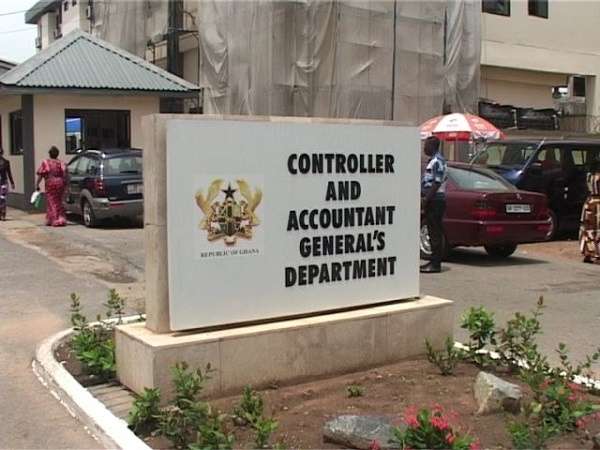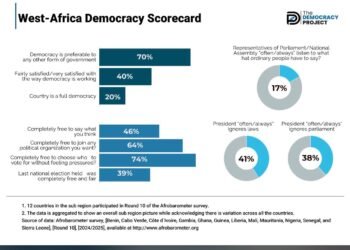The persistent issue of ghost names on Ghana government payrolls is a complex problem that has plagued the country’s public sector for years.
Ghost names refer to the practice of including non-existent or unqualified individuals on the government’s payroll, resulting in the payment of unearned salaries.
This phenomenon has far-reaching consequences, including financial losses, corruption, and undermining the public’s trust in the government.
Inadequate verification processes have allowed ghost names to persist on the government’s payroll, highlighting the need for more robust checks to confirm employees’ existence, identity, and eligibility for payment.
Furthermore, manual payroll systems used by the government lack automation and are susceptible to errors and manipulation, emphasizing the importance of automating processes to enhance efficiency and reliability.
Moreover, the persistence of ghost names is a symptom of entrenched corruption, where officials manipulate payrolls for personal benefit, and supervisors and oversight bodies fail to exercise effective supervision and oversight, enabling this corruption to continue unchecked.
Also, poor data management perpetuates the ghost name problem, characterized by inaccurate, incomplete, or outdated employee data, a lack of accountability, and a culture of impunity, where those responsible for ghost names face no consequences, enabling this malpractice to continue unchecked
Likewise, political meddling undermines the payroll process, as influential figures exploit their power to insert unauthorized names, perpetuating the ghost name phenomenon
Insufficient transparency in payroll management also conceals ghost names, restricting access to vital information and hindering effective detection and prevention measures.
Recently, the Office of the Special Prosecutor (OSP) and the Controller & Accountant General’s Department (CAGD) have released findings into the Government of Ghana Payroll Administration.
These findings were a result of an investigation covering employees on the Government payroll in the Northern Region only.
Accordingly, the investigation uncovered a staggering GHC2,854,144.80 in unearned monthly salaries, paid to “Ghost Names” – individuals who were deceased, retired, or no longer in their positions.
“The OSP and CAGD observed that the payroll system in the Northern Region (covering educational institutions under Ghana Education Service and the Tamale Teaching Hospital only) is attended to by an alarming number of unauthorized and inactive validators”.
“In one instance, it was discovered that a primary school in the Kumbungu District of Ghana Education Service did not exist at all. Yet, this non-existent contrived entity was represented as staffed and the purported staff were being validated monthly and being paid salaries”.
Office of the Special Prosecutor (OSP)
As such, the OSP noted that blocking fraudulent payments and removing ghost names from the payroll saved Ghana GHC34,249,737.60 in 2024, with ongoing savings and potential pay adjustments expected in future years.
Ending Ghost Payroll in Ghana
Ghana’s ghost name payroll problem needs a comprehensive fix and to effectively address this challenge, a combination of technological, administrative, and legal measures must be implemented.

As such, automation and digitalization of the payroll system are crucial to reducing human error and manipulation.
Biometric verification and employee validation processes can ensure that only genuine employees receive salaries while regular audits and data analytics can detect and prevent ghost names.
Moreover, collaboration with anti-corruption agencies and whistleblower protection can encourage reporting of suspicious activity.
Similarly, strengthened legislation is also vital to prevent and penalize ghost name fraud, providing a robust deterrent against such schemes.
As such, the OSP recommended that individuals implicated in the ghost name scandal be held accountable and face the full force of the law.
“The OSP and CAGD are engaged in enhanced investigation into the educational institutions under Ghana Education Service in the Northern Region and the Tamale Teaching Hospital aimed at the prosecution of persons who promoted the non-existent school; validated deceased, untraceable, and retired persons and persons who have vacated their posts”.
Office of the Special Prosecutor (OSP)
Furthermore, citizen engagement and participation in monitoring payroll information can foster a sense of ownership and responsibility.
Performance management systems can monitor employee productivity, identifying ghost names and inefficiencies and data analytics can detect patterns and anomalies, facilitating swift action.
Likewise, a comprehensive approach requires political will and commitment to tackling corruption to ensure the elimination of ghost names, promote transparency and accountability, and ensure efficient use of public resources for the benefit of all citizens.
Thus, addressing ghost names on Ghana government payrolls demands a holistic solution that combines technology, administration, law, and citizen engagement.
Ghana can build a more transparent and accountable public sector, promoting economic development and prosperity for all, by working together with all stakeholders.
READ ALSO: Sentuo Oil Refinery’s $164M Tax Break Raises Eyebrow























